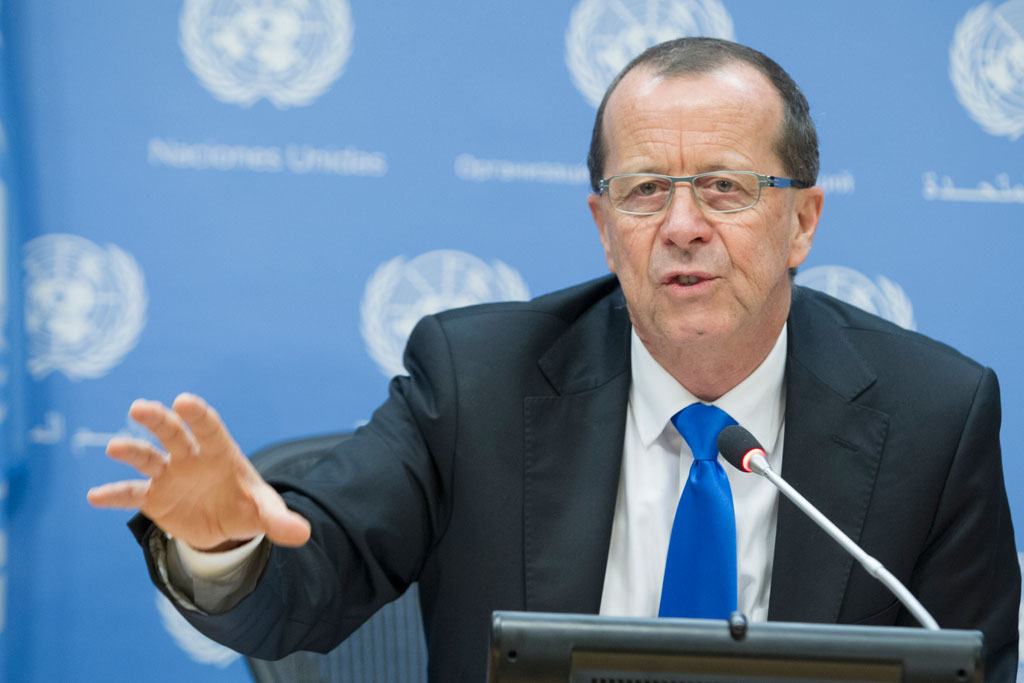Cairo-Libya’s First Deputy Speaker Mohammed Shoeib said on Tuesday that Parliament has rejected a proposal submitted by U.N. Special Envoy Martin Kobler to launch an intra-tribal dialogue in an attempt to resolve the crisis in the African country.
Shoeib noted that such dialogue could not happen as several areas are not dominated by tribes, including Tripoli.
In an interview with Asharq al-Awsat newspaper, Libya’s first deputy speaker said that U.S. military airstrikes were not seen as foreign occupation, but had specific targets and timings.
He also noted that the unity of the Libyan people and national reconciliation were the best means to face terrorism, adding that the terrorist ISIS group did not have a suitable environment to grow in Libya.
Shoeib gave his remarks in Cairo, where he held political negotiations with Arab League Secretary General Ahmed Abul-Gheit and Egyptian officials regarding the crisis in Libya.
He said that tough and intensive talks were held with the temporary government and the internationally unrecognized government in Tripoli to preserve Parliament as the last democratic institution in the war-torn country.
“We could move from armed conflict to internal dialogue between the different institutions, including Parliament, which gathers all Libyans, the presidential council, the state council, the national security council and the state council; hence, we can say that a document was discussed by the different state institutions aiming at reaching peaceful alternation of power, away from marginalization and violence,” Shoeib said.
Asked about the outcome of dialogue, Shoeib said that the Libyan factions have agreed and signed the Sirte Document, which highlighted democratic and liberal values and rejected violence and extremist rhetoric. He added that the document was completed in December 2015.
Regarding U.S., French and British airstrikes, the deputy speaker said that no country could face terrorism alone. He noted that all forms of cooperation is needed, starting with exchange of intelligence information and ending with joint military operations.
On whether negative repercussions could affect the Libyan people due to foreign military interference, Shoeib said that those depend on the Libyan military leadership’s dealing with the quality and timing of airstrikes. He also stressed the importance of cooperation in border control, information exchange and air and sea monitoring.
The Libyan deputy speaker described his meeting with the Arab League secretary general as positive. He added that talks in Egypt presented an opportunity to clarify misunderstandings and vague positions.
He also revealed that Abul-Gheit promised him to visit Libya in support of parliament and the presidential council.
